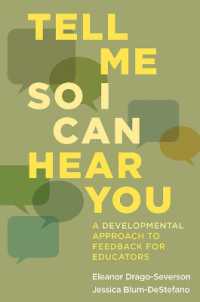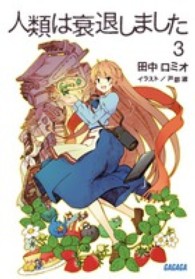- ホーム
- > 洋書
- > 英文書
- > Religion / Ethics
Full Description
During the era of slavery in the Danish West Indies, a distinct Africana heritage religion was developed by the enslaved population that relied on performative expression, and Gregory Carter traces this heritage.
This spiritualty shared many attributes with other African heritage religions throughout the African Atlantic, including belief in spirit powers, the veneration of ancestors, polyrhythmic music, dance, costumed masquerade performance, reliance on herbalism and spirit mediumship. Simultaneously, they also incorporated Evangelical Lutheran/Moravian Christianity and the practice of altaration. Backtime Religion in the Danish West Indies: Africana Heritage Religion Beyond Obeah contends that the altaration of the human body is key to conceptualizing how enslaved Africans and their descendants contended with the terrible conditions inherent to slavery, the dislocation of spiritual connections from Africa, and built a renewed and living spiritual understanding on the Danish islands. To prevent loss of cultural knowledge and spirituality, the Danish West Indian enslaved community adapted to life on the islands with immediate pragmatism and took in every available means to regain connection to spiritual power available, containing and hiding this spirituality within living human bodies. Through in-depth research, Carter provides insight into how this religious practice, African heritage, and culture continue to impact the present-day Virgin Islands.
Contents
List of Figures
Acknowledgements
Introduction
Chapter 1: Theoretical Approaches to the Backtime Religion
Chapter 2: Spirit Manifestations on the Volta Estuary
Chapter 3: Slave Villages as Altar Spaces
Chapter 4: The Weed Women: Healers of Body and Spirit
Chapter 5: Altaration in Dance, Music, and Masquerade
Chapter 6: "Do for Do is Not Obeah:" The Danish West Indies and Historical Discourses about Obeah
Chapter 7: The Plantation Church: Christianity as a Component, not a Whole
Conclusion
Bibliography
Index
About the Author







